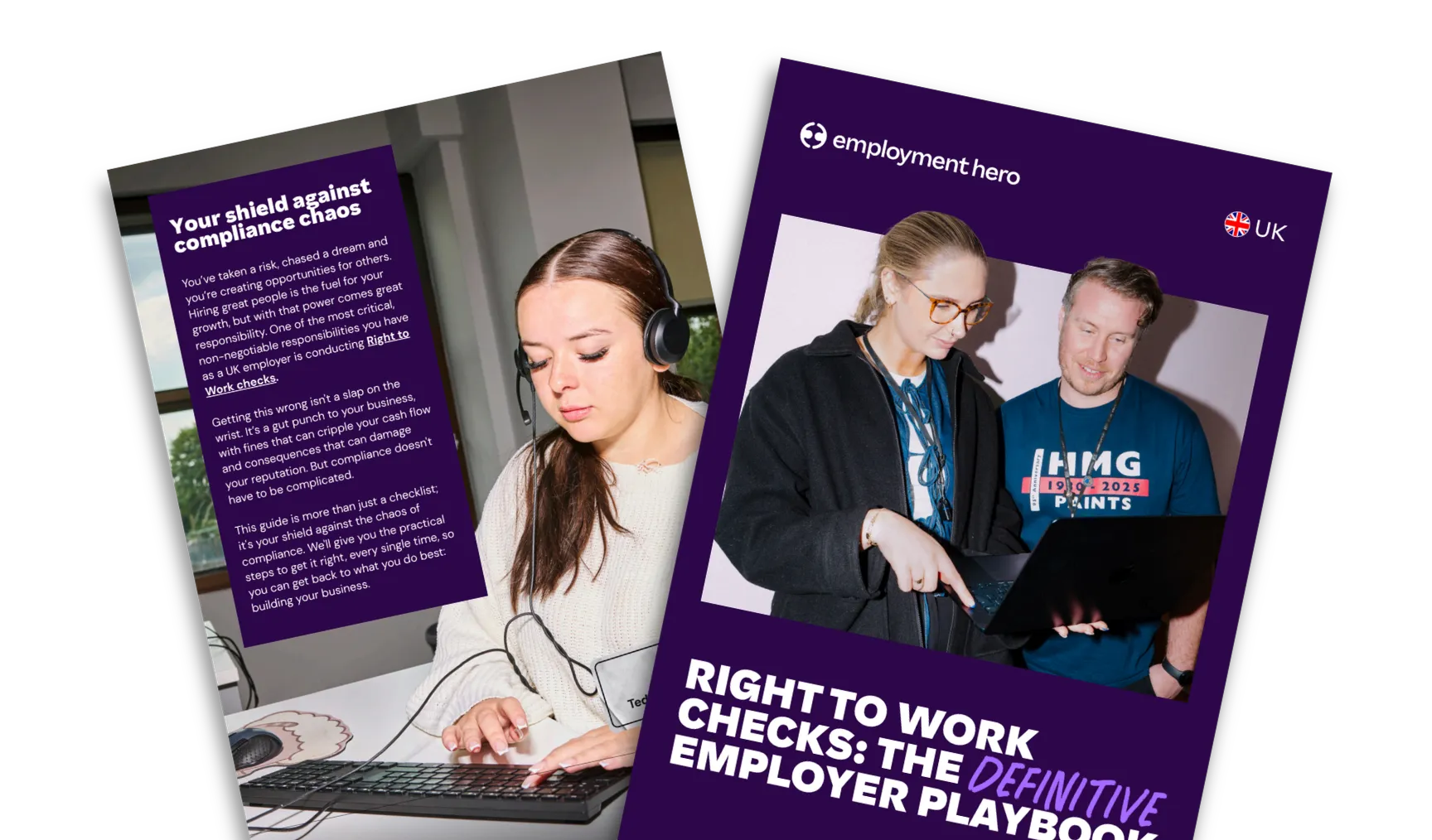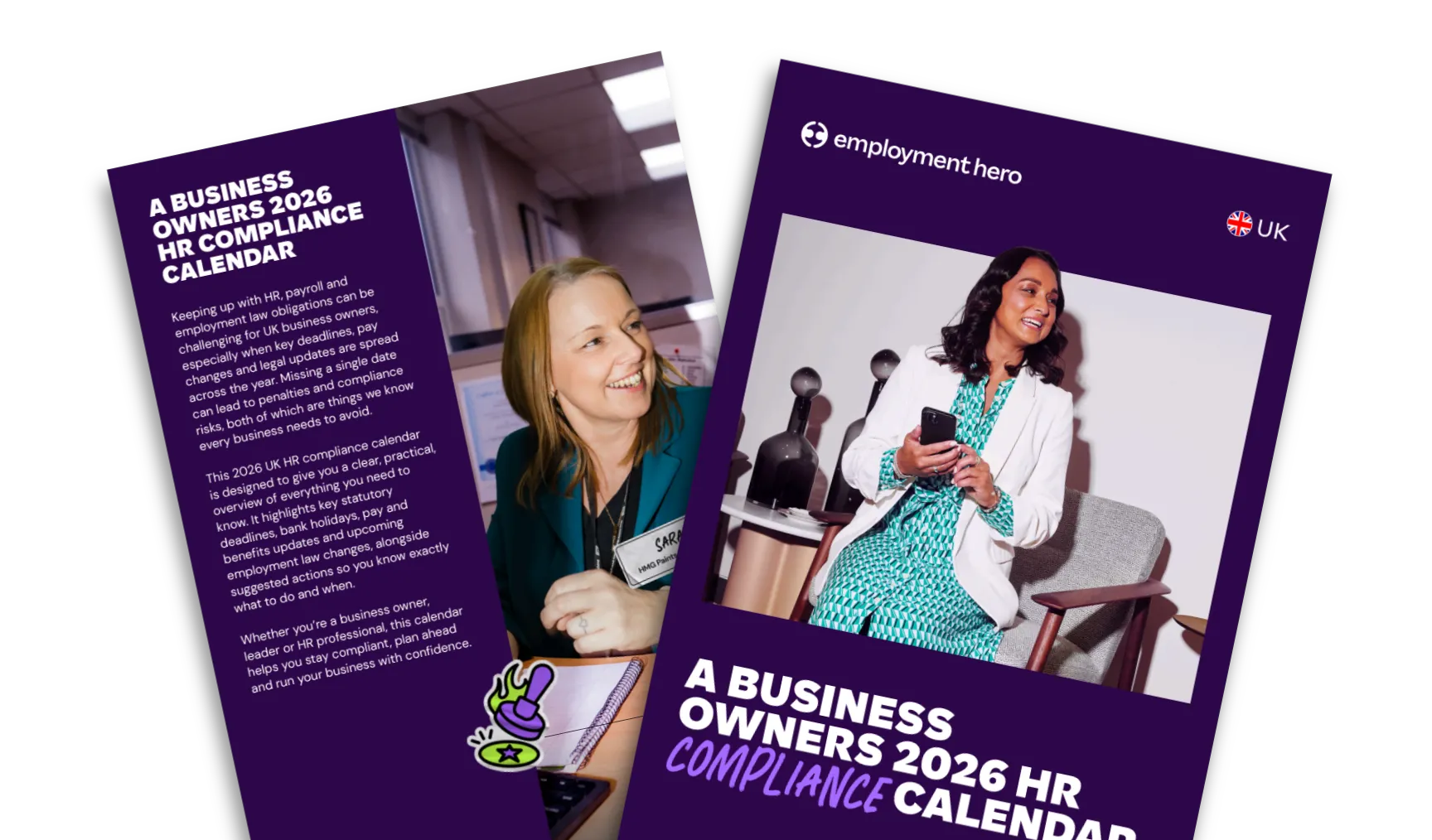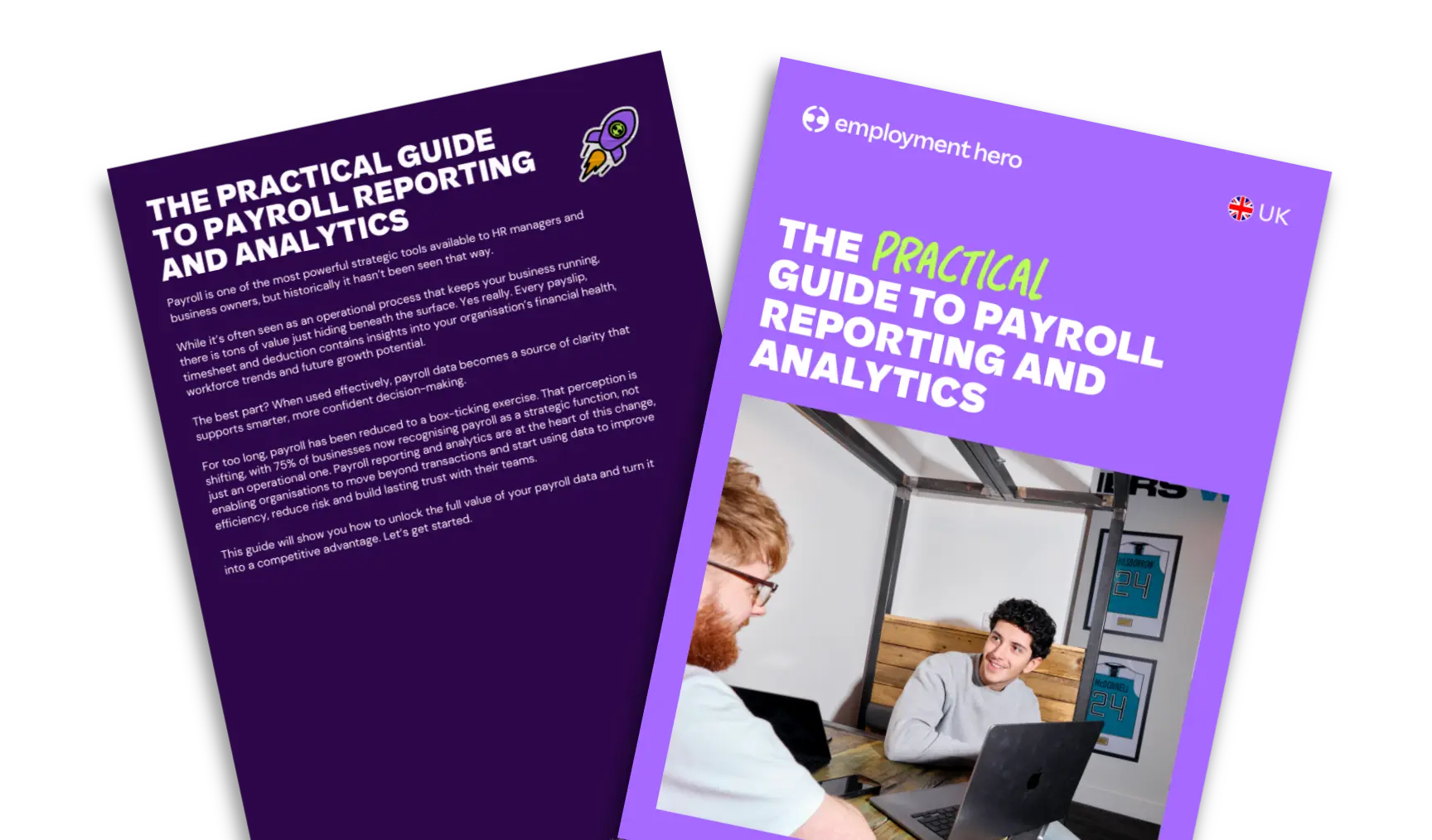Neurodiversity toolkit for employers
Published
Neurodiversity toolkit for employers
Published
Empower neurodiverse talent in your workplace
In today’s ever-evolving world of work, embracing diversity is no longer optional, it’s essential. And for business owners, leaders and HR professionals learning how to support neurodiverse employees is part of this.
But before we dive in, let’s kick off by looking at what neurodiversity actually is. Neurodiversity refers to the natural variations in how people think, learn and process information, including conditions such as autism, ADHD, dyslexia and others.
As businesses seek to foster innovation, improve performance and build truly inclusive cultures, recognising the value of diverse talent is a powerful step toward achieving these goals.
Unlock greater productivity, boost inclusivity, fuel innovation and set your business up for long-term success by embracing diverse talent. With the right neurodiversity resources for employers, business owners, leaders and HR managers can create an environment where diversity thrives.
What’s inside the toolkit?
- Inclusive hiring practices
- Managing neurodiverse employees
- Building a neuro-inclusive culture
Why neurodiversity matters in the modern workplace
Neurodiversity plays an integral role in shaping the future of the modern workplace. Let’s dive into why.
1. Driving innovation through diverse thinking
Neurodiverse individuals bring distinct ways of thinking, often approaching problems and processing information differently from neurotypical peers. These varied cognitive styles can spark creative solutions, uncover fresh perspectives on complex challenges and drive innovation beyond conventional approaches.
2. Creating more inclusive Workplaces
For businesses, diversity is essential and managing neurodiverse employees is all part of this. It encourages businesses to re-think traditional hiring, management and communication to ensure no one is excluded.
Inclusive design, whether in recruitment practices, office environments or management techniques, helps remove barriers for everyone, not just neurodivergent individuals. This fosters a workplace culture where a broader spectrum of people can succeed.
3. Enhancing team performance and morale
Teams that embrace diversity often become more empathetic, adaptable and collaborative. This often results in higher productivity and performance due to improved communication, deeper trust and reduced stigma.
4. Meeting legal and ethical responsibilities
In the UK neurodiversity is protected under anti-discrimination laws through the Equality Act 2010. The Act legally requires employers to prevent discrimination and make reasonable adjustments for employees with a disability.
But it’s more than just remaining HR compliant. For businesses, there is an ethical imperative to foster inclusivity and show a genuine commitment to equality in the workforce.
5. Strengthening employer brand and talent retention
As much as inclusion matters to businesses, it also matters to job seekers. Many modern job seekers (especially Millennials and Gen Z) value workplaces that celebrate diversity. And companies that are seen as inclusive are often considered forward-thinking, compassionate and people first. This reputation not only attracts top talent but also improves employee retention by demonstrating a commitment to accommodating and empowering every team member.
The benefits of embracing neurodiverse teams
Managing neurodiversity in the workplace comes with huge benefits to the team and can often create a significant competitive edge. When each person can bring their unique experience, perspective and skills to a workplace, the whole team will benefit.
Here are some of the main benefits that the neurodiversity toolkit can help you harness.
Boosted productivity
Productivity is a big buzzword for many business owners, leaders and HR professionals, businesses are constantly striving to improve it. And having a more diverse team could just be the answer.
Inclusive teams benefit from a varied skillset and different ways of approaching tasks. This means that certain team members may excel in areas their peers do not. This can lead to huge improvements in productivity. So, by having a diverse team, managers can unlock untapped potential and optimise team efficiency across a range of functions.
Enhanced innovation
Diversity often generates new ideas, fresh perspectives and unconventional thinking, which are all things that can lead to breakthrough ideas. Diverse teams have the capability to approach tasks or data in a different way, which can lead to new products, improved services and creative problem solving.
Fostering a neuroinclusive culture encourages employees to share bold ideas without fear, which is an essential ingredient for true innovation.
Stronger problem-solving capabilities
Teams composed of varied cognitive styles are better equipped to approach challenges from multiple angles. Inclusive teams will have members with a variety of approaches to problem-solving. When managed effectively, these diverse viewpoints foster deeper analysis, reduce blind spots and lead to more resilient, well-rounded solutions to complex problems.
How to support neurodiverse employees every day
For business owners or HR managers, creating an inclusive environment for a diverse team isn’t a one-time initiative, it’s an ongoing commitment woven into workplace culture.
Here are some of our top tips for managing neurodiverse employees.
1. Foster a culture of psychological safety
Focus on creating a workplace that is psychologically safe for your employees. Encourage open communication and ensure employees feel safe disclosing neurodivergent traits without fear of stigma or negative consequences. Normalise discussions about different working styles and create team norms that value empathy, patience and active listening.
2. Offer flexible working arrangements
Flexibility around work hours, remote or hybrid setups and ways of working can make a huge difference. Many neurodivergent employees benefit from environments where they can manage sensory input, take focused breaks and structure their day to suit their energy and cognitive patterns.
3. Communicate clearly and respectfully
Use clear, direct language in meetings, written communication and task instructions. Avoid ambiguity where possible and be open to repeating or rephrasing information if needed. Visual aids, bullet points, or follow-up summaries can also help reinforce understanding.
4. Personalise support and feedback
A diverse team may have members that prefer different forms of feedback, some may thrive on regular check-ins, while others may prefer written reflections. Ask what works best and tailor your approach accordingly. Recognise strengths as well as areas for growth and focus on progress over perfection.
5. Make adjustments proactively
Don’t wait for a formal diagnosis or a complaint to make changes. Simple adjustments, like noise-cancelling headphones, quiet workspaces, screen-reading software, or changes to lighting, can create more inclusive environments. Invite employees to suggest tools or setups that work best for them.
6. Train Managers and Teams
Equip leaders and team members with training on neurodiversity, inclusive leadership and unconscious bias. Educated teams are better prepared to collaborate respectfully, appreciate cognitive differences and support one another effectively in day-to-day work.
Support a diverse team with Employment Hero
Fostering an inclusive workforce has clear benefits for a business, its culture and its employees. In order to get the most out of your team, business owners, leaders and HR managers need to be equipped with the right tools. This is where Employment Hero’s neurodiversity resources for employers can come in handy.
But Employment Hero can do much more than just support inclusion in the workplace. Our Employment Operating System (OS) takes the traditional isolated aspects of employment and integrates them into a seamless, human and AI-powered solution that empowers employers, employees and job seekers alike.
Find and hire top talent with SmartMatch, seamlessly onboard new hires, automate complex payroll, drive employee engagement and more!
Our all-in-one system puts HR, payroll, hiring and more all in one place.
Frequently Asked Questions
Neurodiversity refers to a person whose brain functions in a way that diverges from what is considered “typical” or “neurotypical”. This means they may experience, learn and behave differently, which is not necessarily a deficit or disability but rather a natural variation in human neurology.
The term typically includes conditions such as:
- Autism spectrum condition
- ADHD (Attention Deficit Hyperactivity Disorder)
- Dyslexia
- Dyspraxia
- Tourette Syndrome
- Dyscalculia
- And other cognitive or learning differences
Yes. Under UK law, employers have a legal obligation to support neurodiverse employees by making reasonable adjustments in the workplace for employees with a disability. These requirements are outlined in the Equality Act 2010, which also protects individuals from discrimination on the basis of disability, among other characteristics.
The neurodiversity toolkit is designed for business owners, leaders and HR professionals who wish to create an inclusive workplace.
Yes. The neurodiversity toolkit is suitable for businesses of any size, including small businesses.
Register for the toolkit.
Related Resources
-
 Read more: Right to Work Checks: A Complete Employer’s Guide (2025 Update)
Read more: Right to Work Checks: A Complete Employer’s Guide (2025 Update)Right to Work Checks: A Complete Employer’s Guide (2025 Update)
Ensure compliance with UK right to work checks. Discover how to complete manual, digital, and online checks correctly and meet…
-
 Read more: A Business Owners 2026 HR Compliance Calendar: Stay Confident, Stay Compliant
Read more: A Business Owners 2026 HR Compliance Calendar: Stay Confident, Stay CompliantA Business Owners 2026 HR Compliance Calendar: Stay Confident, Stay Compliant
Stay ahead in 2026 with our HR Compliance Calendar. Key deadlines, legal updates and compliance tips to keep your business…
-
 Read more: The Ultimate Guide to Payroll Reporting and Analytics
Read more: The Ultimate Guide to Payroll Reporting and AnalyticsThe Ultimate Guide to Payroll Reporting and Analytics
Published Published Payroll for HR managers and business owners is one of your most powerful strategic tools. While it is…



















